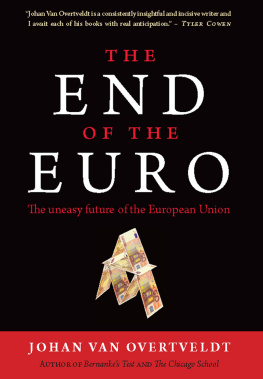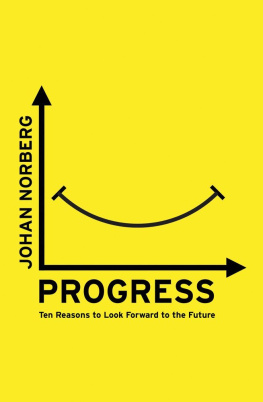Afterword
In Dreams Begin Irresponsibilities Jack Womack
The title of this afterword is a direct quote from the first essay in this sui generis -- meaning, in this context: most excellent -- collection, Michael Jackson is Dead, alas.
Since the days when the Romans admired their finely sculpted Greek statues as they beat their Athenian helots senseless, everyone has imagined that the era in which they live cannot help but be lacking, compared to the great era they managed to just miss. (Burt Lancaster in Atlantic City: You should have seen the ocean back then. It was something.) San Francisco will never be the city it was before the earthquake, Europe no more the peace-loving farrago of kingdoms it was prior to the summer of 1914, and that perfect country called the USA lost its innocence for the seventeenth time by noon, September 11, 2001.
In the thirties Depression-battered folk dreamed of gilded dining rooms, wasp-waisted yet large bustled soubrettes, braces of squabs and limitless bowls of terrapin and green turtle soup, but in those places they would never sup. In the early sixties gray-flannelled Madison Avenue, fearful that their bosses would find their gray ties a tenth of an inch too wide could imagine the day when theyd have known the passwords for every speakeasy, could enjoy bad whiskey served in broken cups, would admire their brown and white spectators and have at their sides girls with Louise Brooks hair wearing dresses indistinguishable from pink teddies; but neither fancy shoes nor lacy step-ins would they ever slip off. Even those who actually used the bathroom at CBGBs have managed, since, to convince themselves that it was a place fondly to be missed; and those who never saw it can only imagine its splendor.
Hear me: the only Golden Age youll ever know is the one youre living in. A crueler aspect of life is that you tend to realize this only in memory, when you begin to think that everything you knew twenty or thirty years before was shinier, easier, cheaper, more satisfying. But any given Golden Age is, in essence, a 45 cut by some group of teenagers in Ohio in 1959 clocking in at 1:47: brilliant, fast, repeatable only so long as the record holds up, and in no way duplicatable.
In early 1977, some months before I moved to New York, I prepared myself for what I already knew was an ongoing Golden Age (Ramones! Patti Smith! CBGBs bathroom!), making my own hepcat t-shirt by 1) buying a white t-shirt at Woolworths and black dye; 2) dying the t-shirt black, which was the only way you could get a black t-shirt , then, outside New York; 3) scrawling across it in legible yet perfectly jagged writing, in white ink that chipped away with the first wearing, the words CULT FIGURE. Once in New York I discovered that Maxs was closed, the good bands were already playing elsewhere, the Chelseas weekly rates were too much for a bookstore employees salary, and it was commonplace to be walking Fifth Avenue in broad daylight and have a group of youth decide to heave bricks at you for no particular reason. Downtown, you could stroll St. Marks Place and see plainly that the commodification of Bohemia had already begun begun sometime around 1919, I suspect.
In these wide-ranging essays Johan recognizes, honors (and occasionally slaps around, deservedly) the worthy folk who often fall between the cracks or go wholly unrecognized during any given Golden Age, only to have their perfect hipness perceived by the perfectly hip only when it no longer matters; or when one such as Michael Jackson begins to out-Elvis Elvis in terms of living the maddest life possible and enters realms not visited since the days of Caligula, had Caligula had access to black credit cards and psychotropic drugs; or when a few withdraw entirely from their society to burn down historic churches, simply because if they didnt do it, who would? In providing these thoughts and these accounts, Johan preserves for a short time a bit longer some of the aspects of the Gone World that few noticed then, or notice now, but are worthy of commemorating: for as go Victorian vitrines displaying arrangements of ferns and stuffed weasels, or a bespoke suit made by Taunitz in the 1930s, or the perfectly shiny jacket that wrapped round a fresh copy of The Big Sleep the day it went on sale, so goes Popular Culture. Enjoy it while its here, because whatever you think will last longest wont.
In the last twenty years, as every inch of what William Gibson has called the Worlds Attic was retrieved, cleaned off, sorted, given a price estimate, and placed securely on high shelves, simultaneously true originality for a time seemed to fade away; so much of the past had been so forgotten, or ignored, that it seemed essential to either recreate it -- a mugs game if ever there was one -- or try and preserve it in toto: equally impossible, eventually tragic. Everything is coming back, the late George W.S.Trows friend told him, in the late seventies, as he relates in his short masterwork In the Context of No Context, and then its never coming back again.
Johan and I were mutual friends of a Master of Popular Culture possibly, the Master. One who, idly queried regarding the bass player for the Ventures, would reply: The studio Ventures or the touring Ventures? One day our friend died, gone before he hit the floor, having just lugged up five flights yet another bag weighted down with LPs rescued from some curbside on Rivington or Essex, because if he didnt do it, who would? Enthousiasmos is too often the A-side of thanatos.
In the popular mind science fiction is supposed to be predictive, but even as science fiction writers throw up their hands and say no, no, no in truth the answer is yes, but in reverse. The bright shiny rockets may have been aimed at Mars and Venus, but landed instead on Hackney and Limehouse. Utopian dreams become dystopian actualities in the blink of an eye. People live not in the harsh environment of the moon, but in the harsh environments of the garbage dumps of Cairo and the favelas of Brazil. It is a safe bet that if a science fiction writer does appear to be predicting something, the opposite will surely take place. As the 20th century visions of science fiction at last become the 21st centurys reality, it turns out that living in the future is harder and less fun than anyone would have ever dared to predict, it seems to us. After postcyberpunk the deluge, and we find ourselves awash in an ever-rising flood. But surely the 20th Century seemed the same, to those who remembered the 19th.
So we turn to fantasy, to reverie, to nostalgia, to dreams; create alternate realities in which we think we can live; but these are highs one grows used to terribly fast, and soon, dreamland is the only place you find yourself able to live. But there you cannot live.
Herein Johan speaks of another deceased friend of his, an artist I never had the chance to meet, the art execution of the man child can never compete with the artistic endeavor and primary art experiences of your own child. And this is so. Not even the most splendid Caravaggio can ultimately compare with the primal creation: of watching a human being slide into this troublesome existence, but with guidance and love slowly taking shape over the years, prepared as much as possible for the only world he or she will know, while yours will mostly remain to them ever after a mystery. And those who experience this know well that this is the only Golden Age whose passing you are entirely too aware of as it happens, even as its passing is barely perceptible. And when that Golden Age passes as do they all into the Gone World, the children you have watched grow into worthy adulthood will grumble, wishing at times that they had been around when things were really fabulous. There will always be a dock, and a green light at the end of it.
But this shouldnt mean the work of the studio Ventures (or, the touring Ventures) should be forgotten -- at least, until it is. And Johan knows that; so let us enjoy the boffins of the London record shows, the escapades of Baron Corvo, the transformation of mimeographed SF fanzines into mimeographed garage band fanzines, and the Rock en el Chopo triple LP. They will not be here forever.













